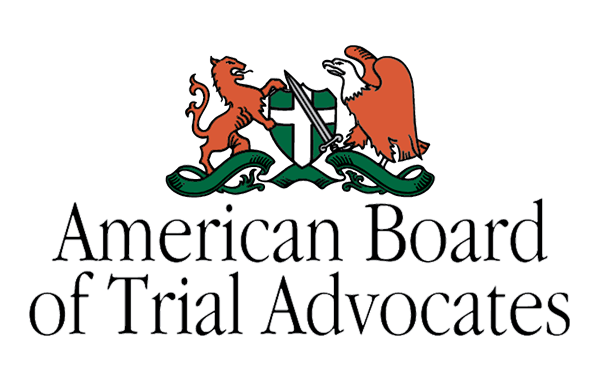When a person suffers an injury due to someone else’s negligence, the journey toward recovery extends beyond the physical and emotional challenges. One of the most critical aspects of this process is navigating the complex world of personal injury law. A crucial part of this legal landscape is settlement negotiations. These negotiations often represent a way to resolve personal injury cases without going to trial. Although it might seem overwhelming, understanding the basic dynamics of settlement negotiations can significantly impact the outcome of a case.








It is important to recognize that most personal injury cases end in settlements rather than trials. This is because settlement negotiations offer a more efficient and often less stressful way for both the injured party and the defendant to resolve the matter. However, these negotiations are more than just a straightforward discussion between the involved parties. They are a strategic and calculated process involving evaluations of the case’s strengths and weaknesses, understanding legal standards, and making informed decisions about how much compensation should be sought. The process requires a detailed understanding of legal principles, strong negotiation skills, and a clear view of the goals that the injured party aims to achieve. Chavez Law Firm is dedicated to providing compassionate support and aggressive representation for individuals navigating the complexities of personal injury cases, ensuring they receive the justice and compensation they deserve.
The Role of Negotiation in Personal Injury Cases
The primary purpose of settlement negotiations is to reach an agreement on compensation that satisfies both parties. For the injured individual, this means receiving a fair amount that reflects their medical expenses, lost wages, pain, suffering, and other damages. On the other hand, the party at fault (or their insurance company) seeks to settle for the least amount possible to avoid the unpredictability of a trial. While some cases proceed smoothly and settle quickly, others may require more extensive negotiation to arrive at an acceptable outcome.
One of the early steps in the negotiation process is when the injured party’s attorney sends a demand letter to the other side. This letter outlines the facts of the case, the injuries sustained, the medical treatment received, and the compensation being sought. The demand letter serves as the foundation for the negotiation process, giving both parties a starting point from which to work. It is not uncommon for the initial demand to be much higher than what is eventually accepted. This allows room for negotiation, with the expectation that the other party will counter the offer.

Protecting Your Rights
The insurance company or the defendant will usually respond with their evaluation of the case, often offering a much lower amount than what was initially requested. From here, the back-and-forth negotiation process begins, with both sides working to reach a settlement figure that they can agree upon. Although this part of the process can take time, patience is essential to secure the best possible outcome. Rushing to settle can result in accepting less compensation than what is deserved.
Factors Considered During Settlement Negotiations
Several factors influence the direction of settlement negotiations in personal injury cases. The nature and extent of the injuries are among the most critical elements. Severe injuries that result in long-term medical care, permanent disability, or loss of earning capacity generally lead to higher settlement amounts. Additionally, the injured party’s medical expenses, both past and future, are carefully considered. The cost of treatment, rehabilitation, surgeries, and any ongoing medical care is factored into the settlement demand.
The issue of liability also plays a central role in negotiations. If the other party’s fault is clear and well-established, the injured party’s leverage in negotiations increases. However, if there is a question about who was at fault or if the injured party bears some responsibility for the accident, the settlement amount may be reduced. Comparative negligence, which allows for the reduction of compensation based on the injured party’s share of fault, can significantly impact settlement negotiations. In cases where liability is disputed, the defense may argue that the plaintiff’s actions contributed to their injuries, and therefore, the amount offered in a settlement will be lower.
Another factor that can influence settlement negotiations is the willingness of the injured party to take the case to trial if necessary. While going to trial can be risky and costly, the possibility of a trial can motivate the other side to offer a fair settlement. The defense is often interested in avoiding the uncertainty and expense of a court case, so the stronger the injured party’s case appears, the more inclined the defendant or their insurer may be to settle.
The Negotiation Process
Negotiating a settlement requires more than just agreeing on a number. It involves careful strategy, patience, and a deep understanding of the legal process. Personal injury attorneys play a pivotal role in guiding their clients through negotiations, ensuring that every aspect of the case is considered and that the client’s best interests are at the forefront of discussions. From the initial demand letter to the final settlement agreement, attorneys help clients understand their options, explain the implications of accepting a settlement offer, and ensure that they do not settle for less than they deserve.
Attorneys also help assess the fair value of a personal injury claim. This involves evaluating both economic and non-economic damages. Economic damages include tangible losses such as medical bills, lost wages, and future medical care, while non-economic damages cover more subjective losses like pain and suffering, emotional distress, and loss of enjoyment of life. Determining the appropriate compensation for non-economic damages can be particularly challenging, as it does not involve straightforward calculations. Attorneys use their knowledge of similar cases and the specific circumstances of the injury to arrive at a fair value for these damages.
It is important for injured individuals to understand that negotiation is not a one-size-fits-all process. Some cases can be resolved quickly, while others may take months of back-and-forth discussions. Patience is key in achieving a favorable outcome. It is also crucial to keep in mind that insurance companies often aim to settle for the lowest amount possible, so having a skilled attorney who understands the nuances of negotiation is essential.
When Settlement Negotiations Fail
While settlement negotiations often lead to an agreement, there are situations where negotiations break down. This can happen for several reasons, such as a significant gap between the parties’ expectations, disputed liability, or a disagreement over the extent of damages. When negotiations stall, the case may proceed to trial. Although going to trial is not the desired outcome for most parties, it may become necessary when the other side refuses to offer fair compensation.
Even though trials can be risky, they sometimes result in higher compensation for the injured party, especially if the evidence clearly supports their case. However, the unpredictability of a trial can make it a less attractive option for both parties. The costs of litigation, including attorney fees, court costs, and witness fees, can add up quickly, making settlement negotiations the preferred option in most personal injury cases.
The Importance of Legal Representation in Negotiations
Having an experienced attorney during settlement negotiations is vital. Personal injury attorneys understand the tactics that insurance companies use to minimize settlements, and they are skilled in advocating for their clients to ensure fair compensation. Without legal representation, injured individuals risk accepting a settlement offer that is significantly lower than what they deserve.
Attorneys not only handle the legal complexities of the case but also serve as negotiators on behalf of their clients. They bring a level of objectivity and knowledge to the table, helping their clients navigate the emotional aspects of settlement discussions. It is easy for an injured individual to feel pressured to accept the first offer, especially when dealing with mounting medical bills and lost wages. However, attorneys ensure that their clients do not settle too quickly and that they receive the compensation they are entitled to.
Understanding the settlement negotiation process is crucial for anyone involved in a personal injury case. The journey to a fair settlement can be lengthy and requires careful consideration of multiple factors, including the severity of the injuries, the extent of medical expenses, and the issue of liability. While settlement negotiations are often successful in resolving cases, having strong legal representation can make all the difference in securing the compensation that is deserved.
If you or a loved one has been injured and are considering pursuing a personal injury claim, the Chavez Law Firm can help guide you through the negotiation process. With a commitment to protecting the rights of injured individuals, the Chavez Law Firm will work diligently to ensure that you receive fair compensation for your injuries. Contact us today to discuss your case and learn how we can assist you in reaching a favorable settlement.



